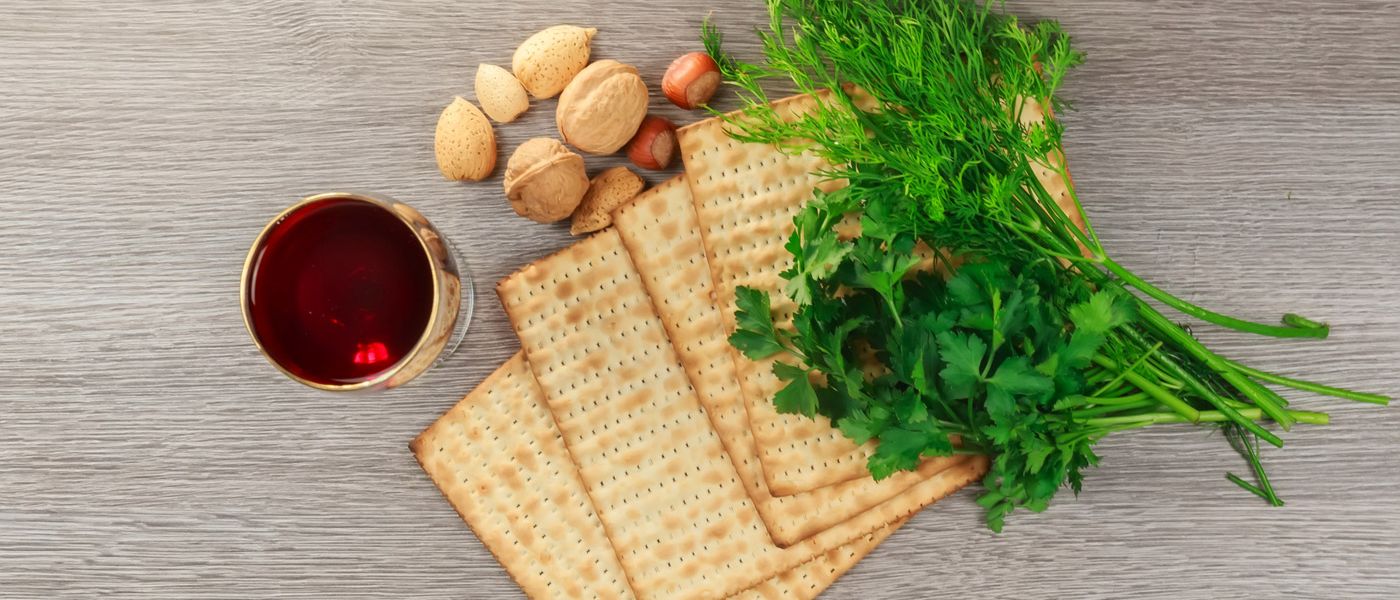I grew up Christian, but I have a Jewish background. My grandmother was an Orthodox Jew who converted to Christianity when my dad was born. Although I was raised Christian, my Jewish heritage has been a strong part of understanding my Christian faith and has enriched my faith and my reading of Scripture.
I see this clearly when I celebrate Passover, the eight-day holiday commemorating the release of the people of Israel from Egyptian slavery. Celebrating Passover lets me interact with the biblical story in a tangible way. I eat special foods that evoke different responses and emotions to convey symbolic meanings. I get to touch, taste and feel the Israelites' flight out of Egypt and into freedom—which Christians correlate with the freedom now experienced in Christ.
Old Testament Significance
Passover is observed in the spring, usually around Easter; Jews mark the first two nights of the holiday with a Seder, a beautiful ritual feast. This meal includes the symbolic matzo and Seder plate, which take you right into the Old Testament story.
Matzo is an unleavened bread (baked without yeast), symbolizing the Israelites' flight out of slavery. They had to leave so quickly that they didn't have time to let their bread rise. Matzo is a square, cardboard-flavored cracker—so stale that each year I'm quite certain ours is a leftover from the original Passover 3,300 years ago.
In the middle of the table is the Seder plate. The elements on the plate are designed to call on all of the five senses to tell the Exodus story. The plate includes a hard-boiled egg, bitter herbs, charoset, parsley and a roasted shank bone.
Charoset, a sweet textured apple and nut mixture, represents the mortar that the Hebrews worked with as slaves in Egypt. Bitter herbs are eaten to bring tears to your eyes to make you feel the bitterness of slavery. Dipping parsley into saltwater causes you to taste the tears of the oppressed slaves. The shank bone reminds us of the lamb that was slain on the night of Passover. The hard-boiled egg represents several things, including springtime and new beginnings—as the Israelites are led out of slavery and into new life.
New Testament Significance
When I celebrate Passover with my family the whole Easter story comes alive for me.
Jesus' Last Supper is a Passover Seder. Jesus breaks his matzo and drinks wine with his closest friends. He hands his disciples the wine and says, "This cup is God's new covenant sealed with my blood, which is poured out for you" (Luke 22:20). Christians interpret this as a fulfillment of God's words to Jeremiah, "The new covenant that I will make with the people of Israel will be this: I will put my law within them and write it on their hearts" (Jeremiah 31:33).
Ultimately, Jesus himself becomes the sacrificial Passover lamb (Matthew 26:17–30; Luke 22:7–38). Christians see this as the final expression of God's command to each Israelite family to kill a lamb and place its blood on the doorpost (Exodus 12:1–12). The blood would save them from the death of their first-born. Jesus' sacrificial death leads us into new and unending life in God.
Now as an adult, I host my own Passover Seder—a gift for my Christian friends to attend and connect with the Jewish roots of Christ's death and resurrection.
Significance for Me
Why is all this important? Other than the fact that for me the Old Testament is basically a family history, the whole context of my faith comes from these ancient traditions. I often feel that my greatest struggle as a Christian is translating the Jewish culture of Jesus' time for today.
But I find that my Jewish background helps bridge the 2,000 years between Jesus' time and me. I feel closer to him when I experience my Jewish heritage. After all, Jesus is a Jew!
Want to learn more about Jewish festivals and traditions?
Read more posts about:
Thanks to the support of our faithful financial partners, American Bible Society has been engaging people with the life-changing message of God’s Word for more than 200 years.
Help us share God's Word where
needed most.
Sign up to receive Bible-reading tips, tools and resources.

